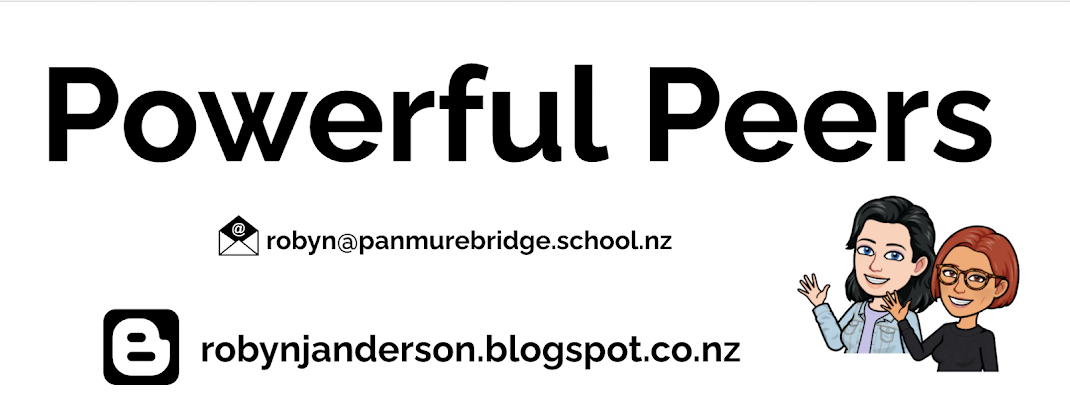Last week I was writing some blog posts linked to my 2021 Inquiry and realised I had 'lost' my direction and focus. Having been the in-school COL teacher since 2017, I was initially thrown by this realisation as I know that I know how to carry out an in depth inquiry. Rather than find excuses for not being on top of my game I decided to find out why so I began by reading the posts that captured my journey so far this year. I then looked back over pervious inquiries and realised there were two important parts missing. An actual inquiry question and a causal chain. I was actually quite shocked that even though I had an inquiry underway I had somehow overlooked writing the actual question.
Step one was to amend this immediately, however it wasn't as easy as I thought it would be. I was trying to fit too much information into a very small space. Fortunately Dr Jannie Van Hees came to the rescue and helped me put into words everything I was trying to say. This wasn't a planned meeting but was definitely a very worthwhile conversation. Dr Jannie reminded me that my question needed to be succinct and through questioning helped me 'drill down' to what it was I actually wanted to focus on which is, 'Will using Talk Moves in maths accelerate student confidence and capability to use spoken and written maths vocabulary and language?'
Step two was to put my causal chain together. I found this so much easier once I had a succinct question to guide me. I have used a causal chain for a number of years and is one of the ways I help the PBS teachers put their inquiries together. Causal chains help to plan steps forward (ie: a cause leads to an effect and that effect becomes the cause of another effect - A leads to B. B leads to C. C leads to D) by working backwards to create a chain of events that unpack the logic of the actions of the inquiry. Once I had done this I had more clarity but still felt a bit lost so I asked for help. I feel that highlighting the fact I asked for help this is important because so many of us overlook this step, preferring to muddle our way through rather than reaching out. It takes a village and within the Manaiakalani cluster we have many people who can and willingly give support when it is needed.
Step three was to organise a meeting with Fiona Grant to talk through my inquiry so far. Fiona helped me see that I that my hypothesis is if I use 'talk' to help my learners gain a deeper understanding of maths vocabulary, this widened connection to maths words will provide opportunities to improve their reading comprehension which will in turn lead to accelerated achievement in maths. I want to find out if using Talk Moves to 'learn' to talk in Maths will help my learners 'learn' through talk. Alongside this I want to see if the knowledge and skills gained can be transferred from the classroom to the blogs.
Fiona asked me what was happening now in relation to my inquiry. I explained that I have introduced, unpacked and created group norms. I have introduced and unpacked the TM framework prompt 'So you're saying' to encourage my learners to actively listen to others' responses. At that point Fiona asked me if my learners understood what that meant. This was when it dawned on me the reason I was 'lost' was because my learners did not have ownership of the Talk Moves process. 'So you're saying' is not how we speak. My students can't see themselves in the framework so there is no personal investment.
As the in-school COL teacher I am always looking for ways I can support our PBS teachers. My takeaways from speaking with Jannie and Fiona are:
- Inquiry questions need to be succinct
- Ask for help if you need it
- Use 'I'm hearing' when teachers are talking about their inquiries so that I am guiding not telling.
- Create a causal chain to help visualise your theory of action.

I really enjoyed reading this blogpost Robyn. It is so difficult to ask for help and even more difficult to admit to yourself you need that help - I too find this a challenge at times. I am looking forward to observing you put your inquiry into practice and learning about Talk Moves.
ReplyDeleteNgā mihi Robyn, very helpful post, I appreciated our conversation too. It's awesome to have a community of learning to share and collaborate with especially when we're reflecting on the hard stuff. He waka eke noa!
ReplyDeleteThanks Fiona. Really enjoyed our conversation as well, it was extremely helpful and helped me get my ducks in a row. I agree it is important to share the hurdles as well as the successes because that is how we learn form each other.
Delete